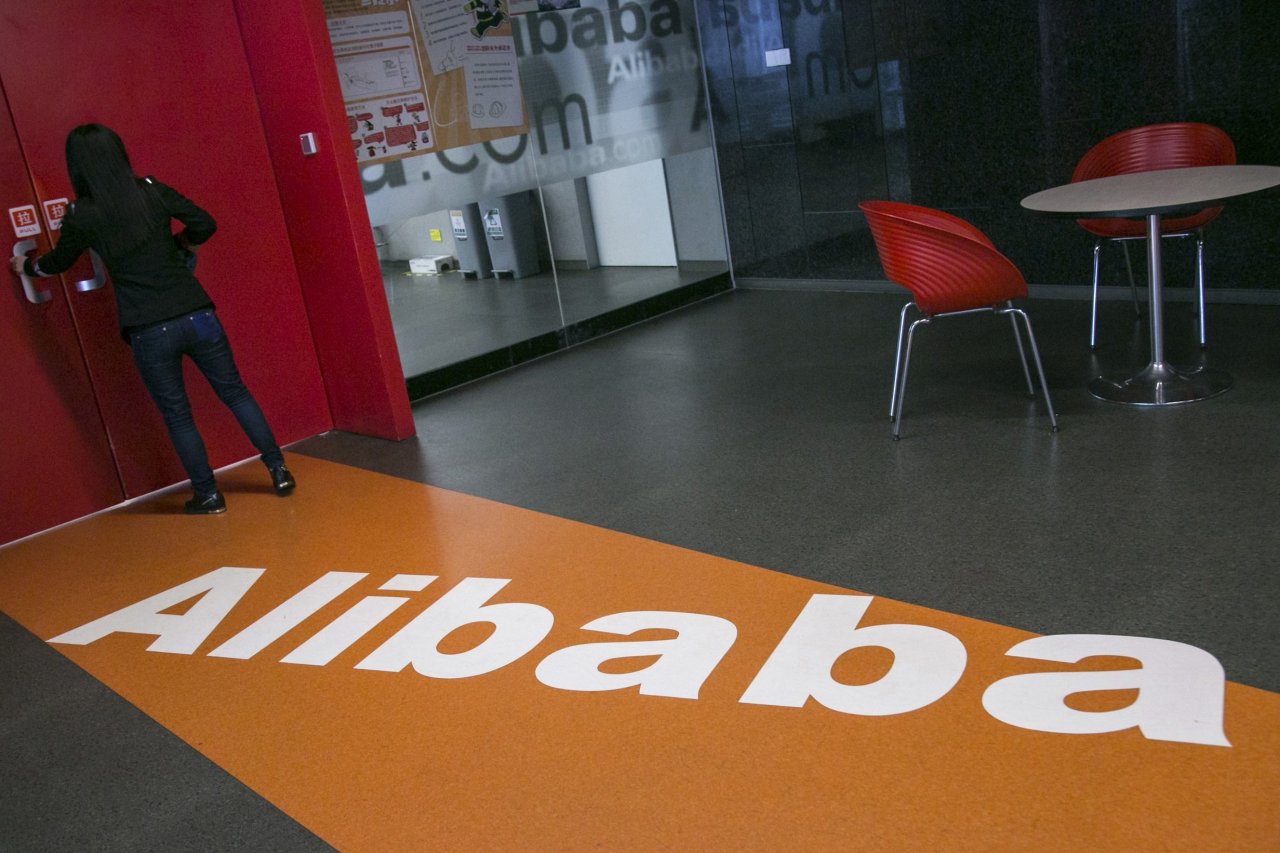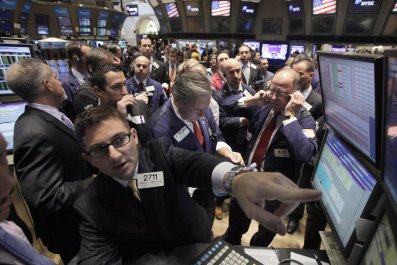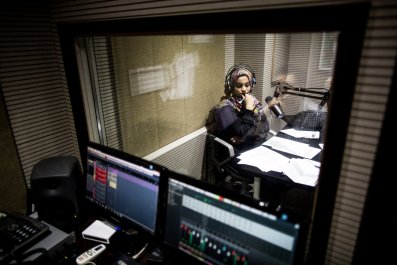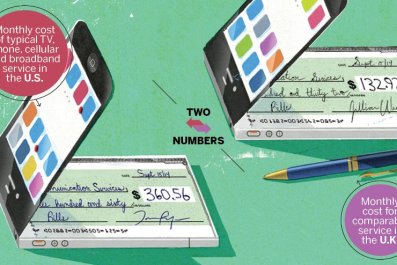In the summer of 2006, the war for control of e-commerce in the world's most populous nation was at its most intense. It pitted a company then known as Alibaba-Taobao, formed in 1999 in the apartment of its founder, Ma Yun (known outside of China as Jack Ma), against eBay, a company that had become a colossus in Silicon Valley and wanted a piece of every market on the globe—like China's, for obvious reasons. In particular: 1.3 billion people, and double-digit economic growth.
During its recent run of breakneck economic expansion, China allowed foreign companies more room to compete than the other East Asian "miracle" economies. And not surprisingly, many were doing well: General Motors, Procter & Gamble, Wal-Mart and a host of other Fortune 500 stalwarts. Pretty much everyone assumed that eBay couldn't lose in an economy jacked up on tens of millions of new consumers whose Internet use was exploding.
That assumption was wrong—wildly so—and I was about to interview Jack Ma to try to figure what he was doing right. When talking to reporters about their most bitter corporate rival, most CEOs the world over are—on the record at least—at pains to say nothing much. You get a lot of the business equivalent of sports-speak: "Both sides play hard, bro, both sides play hard… "
But not Ma. An elfin figure—short and slight, with wide ears and an infectious smile—who doggedly taught himself English in his hometown of Hangzhou, about 90 miles south of Shanghai, and was briefly an English teacher, he was eager to talk some serious trash, and for good reason: He was kicking eBay's butt.
Ma cackled and hooted as he detailed how his company was pantsing eBay because he understood Chinese consumers' tastes so much better than the U.S. outfit did, and how he'd tailored his two main websites—Taobao, the consumer site, and Alibaba, a business-to-business site—to fit China. Then he told me something that I hadn't known: eBay was so concerned about losing in China that Meg Whitman, its buttoned-down, Harvard MBA CEO, had decamped to an apartment in a luxury hotel in central Shanghai to quarterback eBay's strategy.
She wasn't able to stem the tide. In 2006, Alibaba blew past eBay's market share in China. Alibaba whipped eBay so thoroughly that by the end of year, the U.S. company had shut down its Chinese website. Hangzhou's David had felled San Jose's Goliath.
That victory was the pivotal moment for Alibaba. It set the stage for what may be, come the week of September 15, the largest IPO in history, when Ma takes the company public on the New York Stock Exchange. Analysts predict Alibaba could be valued at anywhere from $150 billion to $220 billion; that top-end figure would make Alibaba the fourth-largest tech company by market capitalization in the world—behind only Apple, Google and Microsoft.
There are plenty of metrics, as analysts say, to justify that kind of valuation. Today, 80 percent of China's online shopping goes through Alibaba's platforms. At the end of last year, Alibaba had 231 million active users. That market was worth $295 billion as of December 2013, and is projected by analysts at CLSA, the Asian brokerage house, to reach $713 billion by 2017.
And what's not to love? A dominant franchise in the world's largest country, where consumers have only just begun to spend. A charismatic leader who has created a strong corporate culture—Ma refers to Alibaba's employees as "Aliren'' (Ali people), and the company's annual retreat for employees and customers is a cross between a revival meeting and a slightly crazed party. (One year Ma and several colleagues came out dressed in Kiss-like outfits and makeup and rocked the house.) Ma constantly beseeches his Aliren to remember the company's priorities: Customers come first, then employees, then shareholders.
The strengths are all real enough. But so too are some risks going forward for Alibaba. Interviews with analysts, competitors and rank-and-file Aliren—as well as a careful review of the company's regulatory filings in advance of the public offering—throw up some cautionary flags. (Because it was in the so-called pre-IPO "quiet period" during the reporting of this story, neither Ma nor other top Alibaba executives could be interviewed.) Alibaba, in just 15 years, has become an extraordinary company, but it is not necessarily a lock that its stock will perform the way, say, Amazon's and Google's have since their IPOs.
"There is room for significant growth, yes, but there are also risks out there that the marketplace may not be recognizing," says one Alibaba executive.
One of them is the simple fact that the vast majority of Alibaba's business is done in the People's Republic of China, and for all its storied economic growth, the PRC remains an autocratic country with a regulatory environment that can be, shall we say, opaque. Alibaba, unlike many of the companies that have listed in either New York or Hong Kong since China's economic opening more than 30 years ago, is privately owned. That is, the government owns no stake in the company. For the IPO, some Alibaba fans spin that as a good thing: Analysts believe that because the next phase of Chinese growth needs to be driven by private investment and more consumption—and less dominated by state-owned behemoths—the Chinese government wants the Alibaba IPO to serve as a powerful symbol to small and medium-sized enterprises throughout the country. Look at what this guy did. You can do it too!
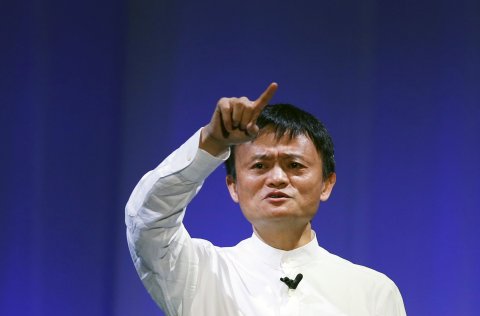
It's not that simple, though. As Porter Erisman, a former vice president for Alibaba and the creator of Crocodile in the Yangtze, a documentary that traces Alibaba's rise, says, no one can do business in China—not a foreign company nor a Chinese company, be it state-owned or private—without trying to cultivate the government, to keep bureaucrats and officials abreast of pretty much everything a company's up to. And if you cross the government (as Google, among others, could tell you), you're screwed.
"If you're not bumping into the government, you're not trying hard enough," Erisman says, "and Jack spent a lot of time over the years knocking on government doors."
The question some Aliren ask privately now is, Did he spend enough time doing that effectively, given some of the moves Alibaba has made? Ma is the archetypal innovative disruptor, creating business where none existed before—online commerce in China—and, more recently, attacking state-dominated sectors of the economy desperately in need of competition. Case in point: Last year, out of the blue, Alibaba unveiled a money market fund—called Yu'e Bao—that pays an interest rate well above that paid to depositors by the country's state-owned banks. Years ago the company had set up Alipay, the equivalent of eBay's PayPal, to facilitate e-commerce. It is a key component of Alibaba's franchise; indeed, Ma told me years before introducing Alipay that ease and security of payments were going to be the key to whether Alibaba thrived.
The company's move into what amounts to direct competition with China's state-owned banks for the deposits of China's savers last year has been, not surprisingly, extraordinarily popular. Its money market fund attracted $90 billion in its first nine months. There is little doubt that the central government knew what Alibaba was up to and allowed it to proceed. But the state-owned banks are not pleased about the new competition for deposits, and there are signs the financial Empire is starting to strike back. Not, mind you, by going after Yu'e Bao directly, but by putting pressure on Alipay.
In the dry prose of a 348-page pre-IPO prospectus—in the section laying out all and sundry risks, going forward, to Alibaba's business—the company's attorneys note, "Regulators and third parties in China have been increasing their focus on online and mobile payment services, such as those provided by Alipay, and recent regulatory and other developments could reduce the convenience or utility of Alipay users' accounts."
Indeed, earlier this spring, the People's Bank of China—Beijing's central bank—put forth for review two new regulations that would, in effect, make it harder for Alibaba customers to use Alipay. "This is the banks' effort to get the PBOC to extract a pound of flesh from Jack Ma," an industry source in Beijing told Newsweek.
Legally speaking, part of the point of a prospectus is to lay out any and all conceivable risk for a business after it goes public. (And indeed, Alibaba's does, up to and including the possibility of "natural disasters.") But two sources at the company pointed me to the sections on what could be a change in the regulatory environment for Alibaba, particularly with regard to Alipay. "I'm not saying we're going to get hurt in these areas necessarily," says one, "but [for investors] to deny that there is legitimate regulatory risk out there—the financial regs are just one prominent example—is just crazy."
The other significant risk is the shifting landscape in the e-commerce business itself in China. The glory days of slapping around the eBay interloper are long gone. Alibaba now is squared off against formidable domestic opposition in the unfolding new world of e-commerce—where transactions occur not on personal computers but on phones. Tencent Holdings Ltd., the leading social media company in China, and search giant Baidu are moving aggressively to take on Alibaba in that e-commerce space.
That threat isn't necessarily imminent—nearly 90 per cent of e-commerce transactions are still done via computers—and Alibaba went into its IPO wildly profitable. In its most recent quarter, the company earned profits of $1.4 billion—more than double the previous year's quarter—on revenue of $3.1 billion. Its gross profit margin was a stunning 78 percent, tied for the highest the company has ever recorded since it began releasing financial results in 2009.
But standing still, insider's acknowledge, is not an option. Just over a year ago, Shenzhen-based Tencent added an electronic payment feature to its very popular social messaging app WeChat, which has nearly 250 million active users. Months earlier, Alibaba had spent $586 million for 18 percent of Sina.com, the proprietor of what had been the most popular Twitter-like service in China, Weibo.
The potential problem for Alibaba? WeChat is stomping Weibo—an illustration of just how quickly the Internet and social media spaces can change in China. The good news for Alibaba is that it knows e-commerce much better than either Tencent or Baidu do.
Analysts naturally compare Alibaba's transition to mobile to the similar challenge being confronted by Facebook. And Alibaba optimists note that Facebook's stock, post-IPO, took a hit on such skepticism, only to rocket back after the company showed it could deftly navigate the mobile universe. "I think Jack is pretty confident we can pull it off," says one company marketing executive.
Former executive Erisman notes that "this is a vast, rapidly growing space in China. Even if one company doesn't completely dominate it, that doesn't mean [Alibaba] won't make huge amounts of money. I don't think there's much doubt that it will, even if the competition intensifies."
Ma, in his typical over-the-top fashion, once wrote a letter to the Aliren in which he said, "Living behind the massive allure of the capital market, there is unparalleled ruthlessness and pressure." Perhaps so. But one month shy of his 50th birthday, he is about to become one of the richest men in China, and quite possibly the richest. He owns 9 percent of the company—a stake that could make him worth at least $10 billion. In the early 1990s, he was an English teacher making less than $50 a month.
One night a few years ago, over drinks at a conference, I asked him what he thought of his journey. Could he ever have imagined it? He grinned broadly, laughed out loud and—showing his mastery of colloquial English—replied simply, "Hell no!"



